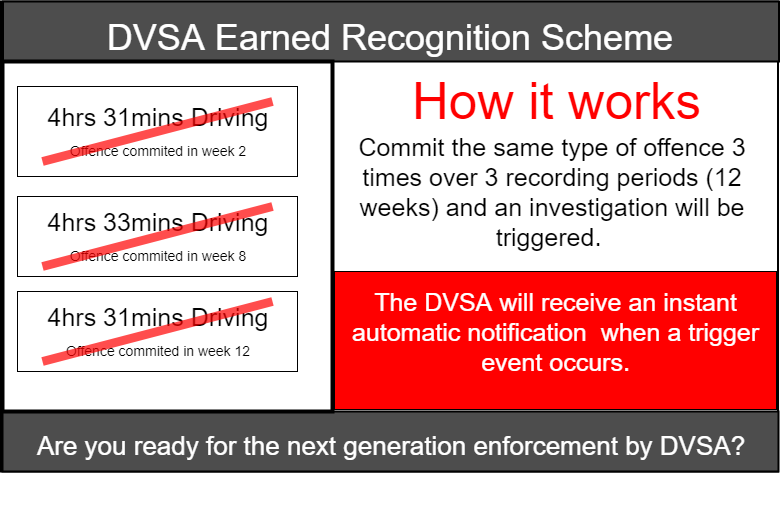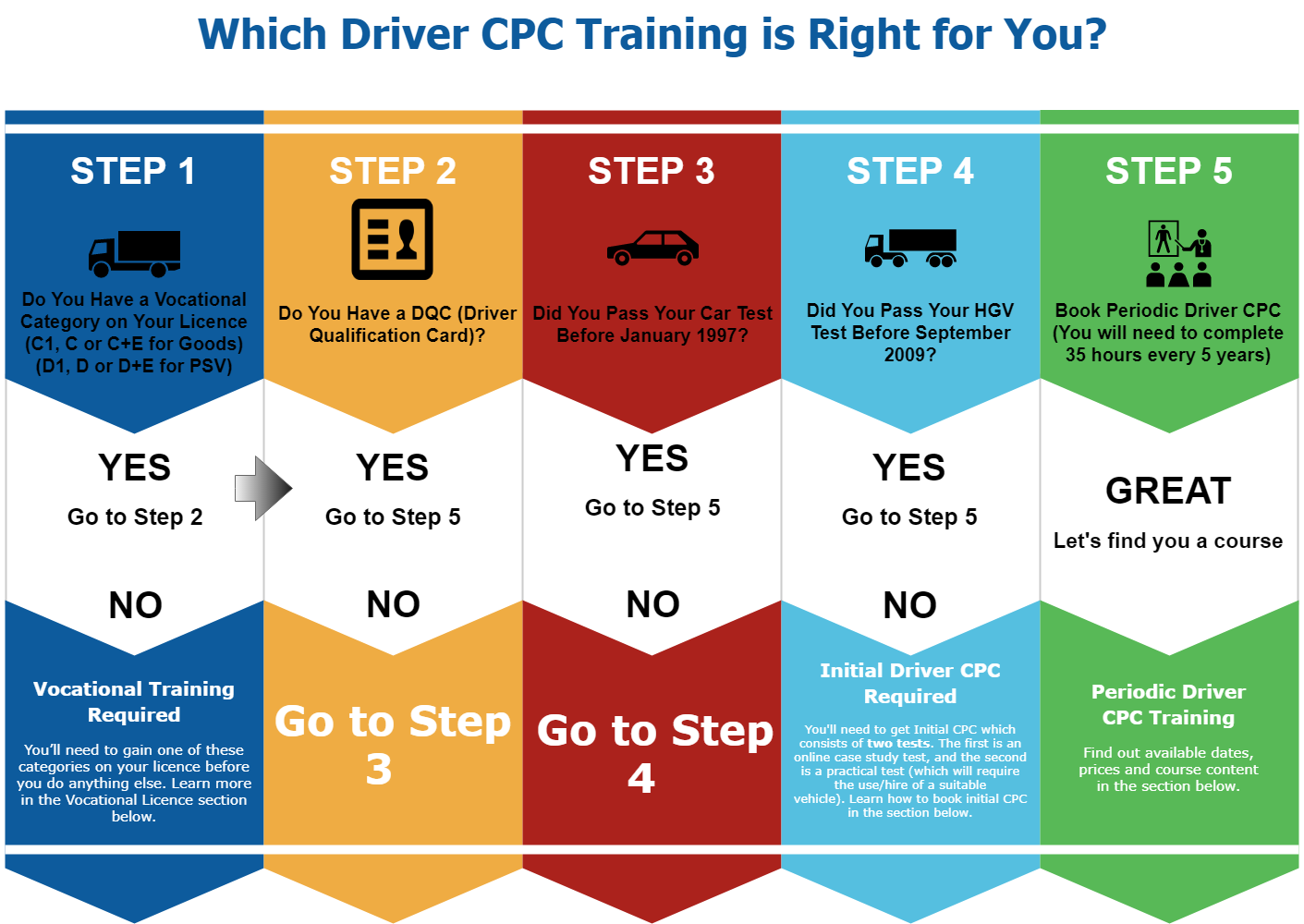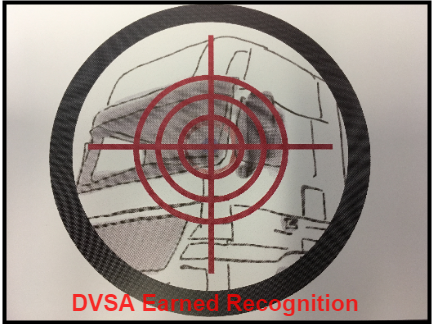What do you want to start driving for?
The industry's not what it used to be!
I know. I get it. Whether you're a new or returning HGV driver, you've likely heard the above statements, or something strikingly similar.
The truth is: it's a tough business. And today, it's the toughest its ever been. For returning drivers, it's a systems shock - how can so much have changed since I last packed it in? For brand new drivers, the term 'learning curve' doesn't begin to cover it.
It's an entire universe of legislation, obligation and best practice - and you need to learn it from scratch, and quickly.
Employment advice for HGV drivers is fairly hard to come by, which doesn't help matters. If you were to Google it, you'll probably come across HGV forums, in which questions as innocent as 'I'm thinking about getting my Class 2...how should I go about it?' will usually generate responses like 'Don't bother!', or 'Do yourself a favour, get an office job'.
And while these snippets of advice do well to deter those who are casually considering a job in logistics, it doesn't help anyone who's determined enough to overcome those initial hurdles, and pursue the career they're interested in.
Hence, I've made a list of 5 things you need to know about getting employment as a lorry driver. Newbies and old hands will do well to read up as much as they can - making an effort to know the industry's situation, and where the driver fits into it, is the wisest move you can make before jumping in with both feet.
1. It's DVSA, not VOSA
During my time in logistics, I've heard maybe 6 professionals (whether drivers, transport managers or operators) refer to the UK's road enforcement agency by its correct name. The moniker 'VOSA' is still ingrained in the minds of everyone in the sector - and it doesn't show any signs of abating. I've had operators on the phone to me after a DVSA inspection, and they've began the conversation with something like, 'The VOSA guy's just left'.
It seems like only a minor thing. And it is, on the face of it. But for those of us whose job it is to keep industry pros informed, up-to-date and straight along the line - it's symptomatic of an old-world mentality. Back in the day, I think many of us saw VOSA as little more than a fly on the windshield: an annoying inconvenience, as opposed to an iron-fisted powerhouse, backed by all the weight of the law.
Because that's what the DVSA is. And if you don't believe me, you'll want to check out a little thing called Earned Recognition. But I'm not going to bang on about that here. Not much, anyway. This graphic'll give you an overview.

2. The rules have changed
This one's major, and it never fails to put returning drivers on the back-foot. The simple fact of it is: over the past 15 years or so, some big changes have occurred. As a result, the driver's life is not comparable to what it was in, say, the mid-noughties. Whether that's for better or worse is a topic of future post. For now, here's a couple of the biggest legislation changes affecting HGV drivers.
- 45-minute breaks
In June 2006, a regulation was introduced. Your 45-minute break could no longer be split into 3 lots of 15 minutes, or one lot of 20 and another of 25. Today, you have only two options: you take the full 45 in one go, or you split it into two parts, the first being at least 15 minutes, the second at least 30. This is egg-sucking for most of us, but for drivers who've been out of the game for a while, it can still take some getting used to.
- WTD opt-outs
As of 2005, drivers could no longer opt out of the Working Time Directive. This, of course, was not well received by the industry. The WTD regulations and the EU Drivers' Hours limits are not exactly harmonious - some would argue that planning routes within the confines of both does more harm than good. There have been calls to reverse the decision, too. Some never got beyond the HGV forums; others became petitions to the government.
Rumours have flourished (more with hope than conviction) that the WTD will be cast overboard when Britain leaves the EU. And while, theoretically, a lot can still happen before the 2019 departure date, nothing has been said to suggest this'll occur when we finally pull up anchor and leave EU waters.
There's a couple of others you should know about, too. Firstly, a split daily rest can only be taken in a 3 hours / 9 hours ratio.
Also, a reduced weekly rest is set at 24 hours. This is regardless of whether you're at base or on a night-out. Upon the introduction of the digital tachograph, the 36-hours-at-base rule was rescinded, and a blanket 24-hour rule instituted across all scenarios.
3. The Driver CPC is here to stay
Let's not tiptoe around it: the CPC's a source of constant confusion for HGV drivers, new and seasoned alike.
In fact, I get so many questions about it, I got a colleague to draw up a graphic to put a few issues to bed.

Many I know have harboured hopes that the CPC would be done away with. Some even said, back when it was introduced, that it wouldn't last two minutes. Despite the opposition it's faced, however, the chances of the State pulling the plug on the 35 hours are 0. Or close to it.
This is another area Brexit's unlikely to impact. So, we'll have to endure. But how do we make the most of it? We covered the best ways to maximize your CPC dollar in a previous post. After all, spending 35 hours in a classroom isn't easy. And paying hard-earned cash for the privilege is seen by some as a kick in the teeth, courtesy of the State's big boot.
But things are looking up - new methods of training, with an emphasis on practical learning and technological application, are being considered by some providers. And this brings me on to my next point...
4. Training: get as much of it as you can
Easier said than done, I know. Training = time + money. Plus, you're thinking, there's a well-reported shortage of HGV drivers in the industry at the minute. I can get a job by having just the bear minimum.
Well, perhaps, but even as the skills gap widens, the industry becomes increasingly specialized. That means both low-paying and high-paying job vacancies are there to be filled. Some drivers have recognized this already, and have went about racking up most of their CPC hours through ADR. Others have went a step further, and got themselves onto specialist ADR courses, like Class 7 Radioactive. We discussed the benefits of adding Class 7 to your ADR licence in this previous article.
Again, it's a matter of money. But it doesn't necessarily have to be your own: if you have the time for digging, you can conduct research into which firms need personnel with specialist additions to their licence, For example, military contractors will require their drivers to be trained in Class 1 Explosives, and many will pay to put their staff through the course (or even conduct it in-house).
That said, let's not forget that having such a qualification before you apply will put you head and shoulders above the competition. It is, if nothing else, a demonstration of long-term strategic thinking, a quality especially prized in the modern job market.
And, as long as we're on the subject of prized personal qualities...
5. Logistics firms want professionals with particular attributes
As is the case with every sector, logistics wants people not only with certain skill-sets, but with certain qualities of character. The more you can demonstrate (in your CV, cover letter, and interview) the better your chances. So, what are these qualities? Among the most desirable are:
- Calmness under pressure. Whether you're carrying a load of radioactive substances or pallets of kitchen roll, you're going to find yourself in tricky and occasionally nerve-racking scenarios. While displaying the cavalier disregard of Dirty Harry would be a step too far, the ability to remain on top of a dangerous situation is highly valued in the industry. As any TM can tell you - the ranting and raving is for the transport office; on the road, Zen is king.
- Good customer service. This, historically, has not been a quality deemed necessary by fleet managers looking to add to their roster. All sorts of industries, however, are becoming more customer-centric, and logistics is no exception. When you're delivering to depots, you'll be dealing with all kinds of customers. Customer care covers a broad area - from dealing with angry depot managers, and communicating clearly to warehouse staff to ensuring the load itself is in tiptop order.
- Initiative and self-reliance. This covers a broad range of sub-qualities, admittedly. But let's lay it on the line: the age of TMs and operators micromanaging their drivers is fading. Nowadays, a TM has enough on their plate simply trying to remain compliant - and with the sector-wide transition to digital means of planning, tracking, recording and storing, the onus is on the driver to manage not only his own schedule, but his legal responsibilities within said schedule. Make no mistake - if you get pulled by the DVSA for any reason, and use an excuse like, 'My TM said it was okay', you'll be held just as responsible as if you say, 'I knew it was against the law, I did it anyway.'*
If you can prove to an employer that your competent and confident in managing your own responsibilities, both to the law and to the contract, you will present yourself as a candidate that will need minimal supervision. And that is very attractive to the modern recruiter. But initiative extends beyond the daily duties of working the roads, and this takes me to a bonus point...
6. Stay up to speed!
When looking at CVs, there's nothing a TM values more in a candidate than the ability and willingness to stay up to scratch with areas of legislation and best practice. Compliance is something no driver, in the modern age, can afford to overlook: updating your knowledge in this area is vital if you want to boost your employability. Look at it from a TM's point of view: they've received dozens of CVs from new and experienced drivers alike - none of them can demonstrate an aptitude for maintaining their own understanding of compliance. This, to a TM, means a heightened risk of accidents, delayed schedules, failed deliveries, and any number of legal issues. So, the experienced driver by default will likely get the nod over the inexperienced.
Make no mistake, whether you're a new driver, or if you're returning after a few years out of it, your biggest asset is your understanding of compliance. If you combine a lack of knowledge with inexperience, it's a surefire way to prevent you from ever getting behind the V8 in a professional capacity. So - study up! There's lots of material out there. A great deal of it is free. For starters, my colleague Chris Allen's written a little book, which you can download for free here. In the internet age, the only sin is ignorance.
You can even go a step further, if you're serious about the task ahead. There are online courses you can do, in areas like Drivers' Hours and Working Time. There's nothing quite like putting your knowledge to the test and getting your results in real time. What's more - you can reference the courses you complete on your CV. This'll demonstrate your commitment to CPD (continuous professional development), which ties back in to our previous point about initiative. If this sounds like you, you can check out some short online courses here:
*Fear & Loathing fans will appreciate.





